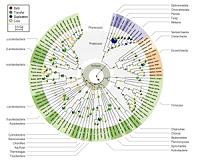| . |  |
. |
Davis, Calif. (UPI) Feb 23, 2011 People with low self-esteem are more likely to show bias or prejudice against people they perceive as different, U.S. researchers say. "This is one of the oldest accounts of why people stereotype and have prejudice: It makes us feel better about ourselves," Jeffrey Sherman of the University of California, Davis, says. "When we feel bad about ourselves, we can denigrate other people, and that makes us feel better about ourselves." To test this assumption, Sherman and others used an Implicit Association Test in which participants are asked to watch a computer monitor to identify and associate a series of positive words, negative words and pictures of black or white faces. The test is designed to assess people's automatic reactions to words and images and reveal bias, a release from the Association for Psychological Science said Wednesday. Before giving the IAT test, participants were given an extremely difficult 12-question test on which none got more than two of the questions right. Half of the group was told their results and then told the average score was nine correct answers, to make them feel bad about themselves. The other half was told the test would be graded later, so they did not know their scores. When both halves of the group then took the IAT test, the group feeling bad about their test scores showed more evidence of implicit prejudice, researchers said. "The way around that is to try and think differently about other people," Sherman said. "When you feel bad about yourself and catch yourself thinking negatively about other groups, remind yourself, 'I may be feeling this way because I just failed a test or something.'"
Share This Article With Planet Earth
Related Links All About Human Beings and How We Got To Be Here
 Subtle Shifts, Not Major Sweeps, Drove Human Evolution
Subtle Shifts, Not Major Sweeps, Drove Human EvolutionChicago IL (SPX) Feb 23, 2011 The most popular model used by geneticists for the last 35 years to detect the footprints of human evolution may overlook more common subtle changes, a new international study finds. Classic selective sweeps, when a beneficial genetic mutation quickly spreads through the human population, are thought to have been the primary driver of human evolution. But a new computational analysis, publ ... read more |
|
| The content herein, unless otherwise known to be public domain, are Copyright 1995-2010 - SpaceDaily. AFP and UPI Wire Stories are copyright Agence France-Presse and United Press International. ESA Portal Reports are copyright European Space Agency. All NASA sourced material is public domain. Additional copyrights may apply in whole or part to other bona fide parties. Advertising does not imply endorsement,agreement or approval of any opinions, statements or information provided by SpaceDaily on any Web page published or hosted by SpaceDaily. Privacy Statement |